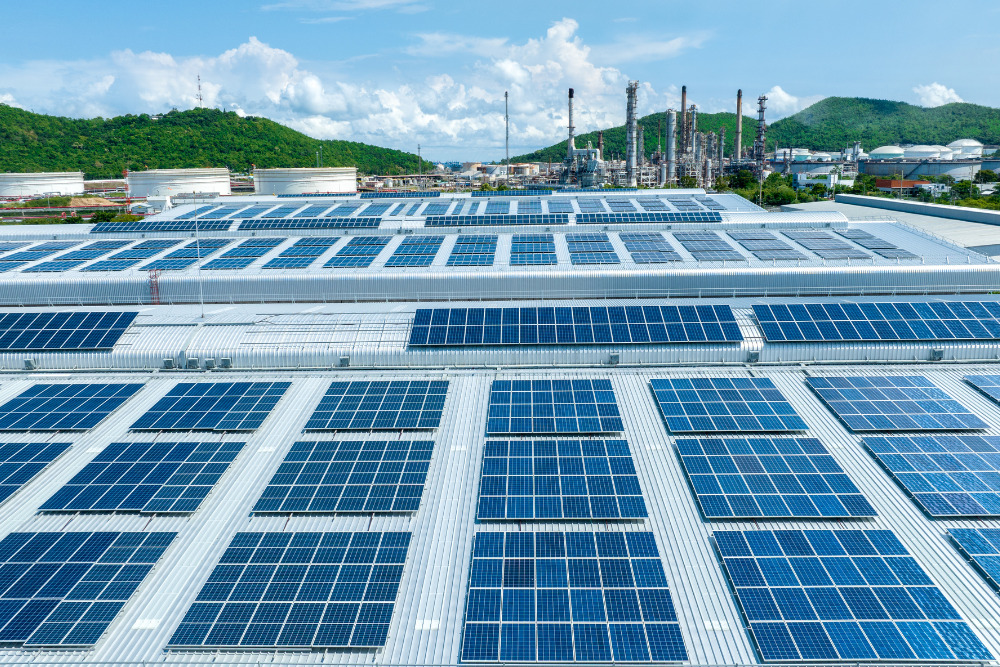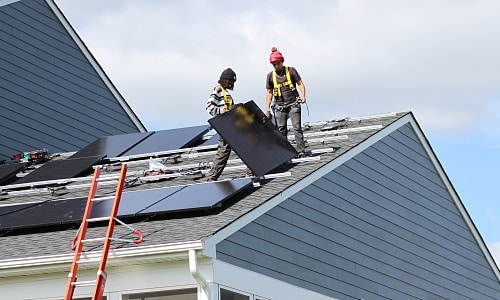Getting My Solar Panel Company Virginia To Work
Getting My Solar Panel Company Virginia To Work
Blog Article
Solar Panel Company: Lumina Solar Focuses On Offering Advanced Photovoltaic Solutions For Homes And Services
History and Founding
Have you ever wondered how a photovoltaic panel business springs from a simple trigger of motivation into a powerhouse of eco-friendly energy? It frequently starts with a vision-- one sustained by a blend of development, decision, and a pinch of serendipity. The journey of many solar business mirrors the development of the innovation itself: from bulky, ineffective panels to sleek, high-efficiency marvels harnessing the sun's bounty.
The Early Days
In the late 20th century, when solar energy was still a specific niche principle, leaders planted seeds for what would end up being an international motion. Think of a little workshop filled with curious engineers, relentlessly try out photovoltaic cells. Their enthusiasm was palpable, frequently driven by a desire to combat climate change and decrease dependence on nonrenewable fuel sources.
One such anecdote is about a creator who, motivated by a camping journey, recognized that even in remote areas, the sun could power necessary gadgets. This simple observation triggered a company's mission to democratize access to tidy energy.
Establishing Concepts

- Development: Continually pushing the limits of solar technology to improve effectiveness and toughness.
- Sustainability: Committing to environment-friendly production and reducing carbon footprints.
- Availability: Making renewable resource services economical and practical for daily users.
Milestones in Growth
| Year | Key Event |
|---|---|
| 1985 | Company founded in a small garage, focusing on research and development. |
| 1995 | Very first business solar panel product introduced, acquiring local attention. |
| 2005 | Broadened to global markets, accepting worldwide renewable resource goals. |
| 2015 | Introduced advanced solar panel technology with boosted energy conversion. |
Isn't it interesting how these incremental actions, frequently overlooked, shape the energy landscape today? The solar panel company story is not almost innovation; it has to do with a relentless mission for a brighter, cleaner future.

Developments in Solar Panel Technologies
Ever observed how some solar panels gleam brighter and last longer? It's not magic; it's the science of photovoltaic effectiveness. Modern solar panel business invest greatly in innovations like bifacial cells, which capture sunlight from both sides, enhancing energy harvest without expanding roofing system area. Have you ever wondered why some panels carry out better on cloudy days? That's due to advances in thin-film solar technology, which thrives under diffused light conditions.
Product Variations Tailored to Distinct Needs
One size never fits all. Solar panel providers now use:
- Monocrystalline panels for maximum effectiveness and smooth aesthetic appeals, ideal for space-constrained roofs.
- Polycrystalline panels, which offer a cost-effective alternative without compromising too much output.
- Building-integrated photovoltaics (BIPV), merging solar tech seamlessly into architectural elements like windows and exteriors.
Picking the right item isn't practically upfront cost; it has to do with matching your environment, energy goals, and long-term cost savings. For example, homes shaded by trees need panels that excel in low-light situations, something many ignore up until energy expenses climb unexpectedly.
Technical Tips for Optimal Selection
- Evaluate the temperature coefficient-- lower values imply panels lose less effectiveness on hot days.
- Look for panels with improved anti-reflective finishes to make the most of light absorption.
- Consider the panel's warranty not just for problems, however for ensured power output over decades.
- Don't undervalue the significance of the inverter technology coupled with the panels; it can make or break your system's performance.
Beyond Panels: Emerging Patterns
Envision solar panels that adjust their angle immediately to chase after the sun-- tracking systems are ending up being more available, increasing yield significantly. Or solar tiles that blend invisibly into your roofline, transforming your home into a silent, self-sufficient power generator. These innovations are reshaping what a solar panel company provides-- not just products, however integrated energy options.
Market Presence and Global Operations
Ever wonder why some solar panel business appear to grow up in every corner of the world while others barely make a ripple? The distinction lies not just in innovation however in mastering the art of browsing diverse markets. Expanding worldwide resembles planting seeds in different environments-- you must comprehend each environment's special conditions to thrive.
Take, for example, the detailed dance of logistics and supply chain management. Shipping panels midway across the world isn't practically distance; it's about timing, custom-mades, tariffs, and adjusting to local demand changes. A company with robust global operations expects these variables, ensuring more info panels arrive on schedule without inflating costs. This insight is no small task and typically separates industry leaders from fans.
Key Methods for Expanding Market Presence
- Localized manufacturing: Developing production centers near target markets reduces shipping delays and import complexities.
- Strategic partnerships: Teaming up with local companies speeds up market penetration and constructs trust.
- Adaptive item design: Customizing solar panel tech to weather, sun strength, and infrastructure nuances improves efficiency and approval.
What about the human factor? Photovoltaic panel business running globally need to reconcile cultural differences and regulative subtleties without losing sight of their core mission. For example, what operate in a sun-drenched desert may fail in a humid coastal region. Sometimes, the most innovative option is just listening-- absorbing regional insights to improve technology and technique.
Specialists often encourage a phased rollout rather than a shotgun expansion. Why run the risk of overextension when measured development develops sustainable momentum? Scaling wisely suggests balancing ambition with operational resilience - Solar Panel Company. In the race for sustainable energy supremacy, patience can be as important as speed.
Ecological Impact and Sustainability Practices
When solar panels initially emerged, lots of assumed they carried zero ecological luggage. The reality is more nuanced. The production of photovoltaic cells involves uncommon earth metals and energy-intensive processes, which can leave a sizable carbon footprint before the panels even reach roofs. Yet, the true environmental cost depends greatly on the sustainability practices utilized by the solar panel business throughout the lifecycle of their products.
How frequently do we stop briefly to consider what occurs to photovoltaic panels at the end of their beneficial life? Unlike batteries or electronics, photovoltaic panels can last 25-30 years, however disposal and recycling pathways remain underdeveloped in lots of regions. A business dedicated to minimizing environmental harm will have a robust prepare for recycling photovoltaic products, restoring valuable silicon, glass, and metals to avoid garbage dump accumulation.
Key Sustainability Methods
- Making use of low-impact production techniques that minimize water and energy usage.
- Executing closed-loop systems to recycle production waste back into brand-new panels.
- Taking part in transparent supply chain audits to ensure ethical sourcing of raw products.
- Creating panels for much easier disassembly to aid future recycling efforts.
It's worth noting that some solar companies have originated ingenious approaches, such as incorporating eco-friendly parts or using less hazardous chemicals during fabrication. This not only lowers ecological stress however likewise sets a precedent for the market. The question stays: can the solar industry truly pivot towards a circular economy design without compromising performance or cost?
Professional Tips for Evaluating Sustainability
- Ask about the business's dedication to carbon-neutral manufacturing and whether they offset emissions.
- Investigate if they partner with licensed recycling facilities dedicated to photovoltaic panel waste.
- Try to find transparency reports detailing environmental impacts and sustainability goals.
- Consider the longevity and guarantee of panels as an indirect step of resource performance.
In the end, deciding for solar energy ought to mean more than just slashing electricity expenses; it has to do with nurturing a future where energy is harvested responsibly and waste is attentively handled. Solar panel companies that embrace this philosophy not only brighten homes however also cast a brighter light on sustainable innovation.
Report this page